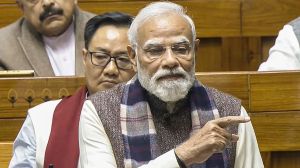Study flags ‘labour issues’ in sugarcane producing states
A recent study has raised the issue of “ambiguity about definitions of child labour and forced labour” related laws in India, especially for sugarcane producing states of Bihar, Karnataka, Maharashtra, Punjab, and Uttar Pradesh.
 The mills had purchased 1014.05 lakh tonnes of cane from farmers for which they had to pay them Rs 32,143.75 crore in accordance with the government-declared Fair and Remunerative Price (FRP) of Rs 2850/tonne. (File Photo)
The mills had purchased 1014.05 lakh tonnes of cane from farmers for which they had to pay them Rs 32,143.75 crore in accordance with the government-declared Fair and Remunerative Price (FRP) of Rs 2850/tonne. (File Photo)A RECENT study has raised the issue of “ambiguity about definitions of child labour and forced labour” related laws in India, especially for sugarcane producing states of Bihar, Karnataka, Maharashtra, Punjab, and Uttar Pradesh.
The joint study, commissioned by the United Nations Development Programme and The Coca-Cola Company, conducted in parts over the last year and concluded in early March this year, has noted that in some of the sugarcane producing states, such as Karnataka and Uttar Pradesh, authorities discounted underage child labour as “children helping parents in the field”.
“Some of the respondents discounted child labour quoting the incidence of ‘children helping parents in the field’. Similarly, confusion was apparent about the advance payment to migrant workers, and associated risks of forced or as they said, ‘bonded’ labour,” the joint study noted.
According to the study, a copy of which has been reviewed by The Sunday Express, most of the interventions in the sugarcane sector, either by government authorities or by the corporate social responsibility (CSR) arm of companies, were focused just on “improving farming techniques to ensure an increase in cane productivity”.
In India, sugarcane is primarily grown and cultivated in Bihar, Karnataka, Maharashtra, Punjab and Uttar Pradesh. Of these, Uttar Pradesh is the largest sugarcane producer and accounts for nearly 40 per cent of the cash crop grown in the country, followed by Maharashtra and Karnataka, which account for 21 per cent and 11 per cent of the total domestic production.
As per the Indian Sugar Mills Association, as of March 31, the total sugar production in the country stood at 277.57 lakh tonne, as against 233.14 lakh tonne produced until the same month last year.
- 01
- 02
- 03
- 04
- 05































